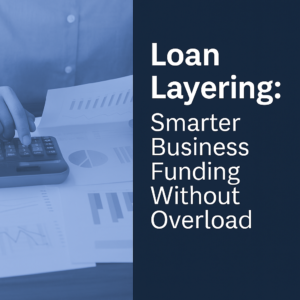Opinions expressed by Entrepreneur contributors are their very own.
A latest lawsuit towards fintech small-business lender Kabbage Inc., charging that it partnered with a financial institution so as to provide rates of interest that exceeded the authorized restrict, highlights the necessity for extra regulatory oversight of the rising variety of on-line lenders signing offers with small companies.
Associated: Bought Dangerous Credit score? Do not Apply for a Mortgage Earlier than You Ask a Few Onerous Questions.
U.S. banks are licensed by both their state’s banking fee or the U.S. Treasury Division’s Workplace of the Comptroller of the Foreign money (OCC) and are federally regulated by both the OCC, the U.S. Federal Reserve System (Fed) or the Federal Deposit Insurance coverage Company (FDIC).
As soon as a financial institution has a constitution, it serves an essential group function: It takes deposits and lends that money to maintain cash transferring by the economic system — a dynamic economists name the multiplier impact.
Finished accurately, the economic system grows sustainably; executed incorrectly, it could actually trigger a recession. If banks take deposits and hoard money, the economic system might contract, and if banks lend with out regard for the borrower’s capability to repay, excessive defaults might trigger credit score to grab up. Financial institution regulator oversight tries to make sure that nothing on this delicate stability goes amiss.
On-line lenders are getting extra scrutiny.
The latest Massachusetts federal case introduced by a small enterprise towards Kabbage (and its companion Celtic Financial institution) highlights why non-bank fintech lenders ought to be regulated. The go well with alleges that Kabbage used its relationship with Celtic — which “rented” its stability sheet to Kabbage — as a foundation to cost rates of interest that violated usury legal guidelines. Usury legal guidelines differ from state to state, however within the majority of states it is unlawful for a non-bank lender to cost greater than 29 p.c curiosity yearly on a mortgage.
Associated: 8 Lending Phrases That Each Entrepreneur Should Know
The case towards Kabbage is only one of many alleging that on-line lenders cost rates of interest that burden their shoppers with unsustainable mortgage repayments. The state of New York is contemplating regulating on-line lenders after lawmakers discovered that there was “vital potential for unscrupulous on-line lenders to take advantage of shoppers by predatory practices comparable to unusually excessive rates of interest, lack of disclosure of hidden charges, and unclear mortgage phrases.”
The state of New York just isn’t alone with these issues: A analysis paper ready for the Fed’s Board of Governors, writes that 20 p.c of small companies search financing from a fintech or on-line lender, in comparison with 52 p.c from small banks and 42 p.c from giant banks. Small corporations with lower than $100,000 in revenues utilized for loans from on-line lenders 30 p.c of the time.
The report concludes that the majority of these taking on-line loans don’t meet underwriting standards for conventional loans and that these lenders usually are not disclosing essential mortgage phrases like APR or clearly figuring out phrases as fundamental because the frequency of funds.
When a borrower doesn’t have enough money stream and accepts mortgage phrases they do not perceive with rates of interest that far exceed the usury restrict, enterprise failure turns into a probable end result.
However on-line lenders usually are not the one choice.
For a lot of of those companies, there are two different and far more accountable choices: micro loans and U.S. Small Enterprise Administration (SBA) loans.
Micro loans are supplied by non-bank, mission-based, non-profit lenders, that obtain funding from personal foundations, the SBA and native banks as a part of their Neighborhood Reinvestment Act efforts. They provide loans to the very smallest of companies that aren’t but prepared for financial institution financing, both as a result of their wants are simply too small, or they’ve threat traits which can be exterior of the banks’ threat profile.
Associated: Want Cash Quick? 4 Choices for Small Enterprise House owners
The loans vary from $500 as much as $350,000 or extra, with rates of interest which can be barely larger than financial institution charges and phrases which can be in step with standard loans. And along with loans, these non-profits usually provide ongoing technical help to assist companies assess enterprise plans, and perceive methods to raised handle their funds.
The opposite choice is SBA-guaranteed loans, which are available in two varieties: the 7(a) program and the 504 program. The 7(a) loans are supplied by banks and SBA-regulated lenders and are partially authorities assured, in quantities as much as $5 million for many enterprise functions. The 504 loans, which can be utilized to buy owner-occupied actual property or capital tools, have a part of the financing coming from a traditional financial institution mortgage in a senior place and half coming from a 100% SBA-guaranteed bond in a second place.
To get an SBA mortgage from a financial institution, an organization goes by an underwriting course of that examines the 5 C’s of credit score — capital, collateral, situations, creditworthiness and money stream. Whereas banks usually demand power in all 5 Cs to qualify for his or her standard loans, an SBA mortgage offers larger flexibility.
Associated: Making use of for a Enterprise Mortgage? Make Certain Your Private Data Is Protected.
SBA loans enable banks to approve a mortgage with much less collateral or a decrease down fee (if money stream helps reimbursement), provide a borrower a long term to repay leading to decrease funds that match the enterprise’ money stream, or in some circumstances, underwrite the corporate’s projections for reimbursement. And normally banks can’t, by regulation, cost greater than Prime + 2.75 p.c on loans over $50,000.
Some companies complain that the financial institution underwriting course of is frustratingly gradual, particularly when in comparison with the sure/no choice that an internet lender could make in simply minutes. Nonetheless, the No. 1 objective of any conventional small-business lender is to make sure that a mortgage by no means harms the consumer. A mortgage should profit the well being of the agency, so ensuring that is the case requires cautious evaluation and scrutiny.
Whereas a standard financial institution underwriting course of could also be irritating for small corporations, the additional velocity that on-line lenders present might come at an actual value to the enterprise — and even your life’s financial savings. So beware!




